District of Columbia Hunting Laws


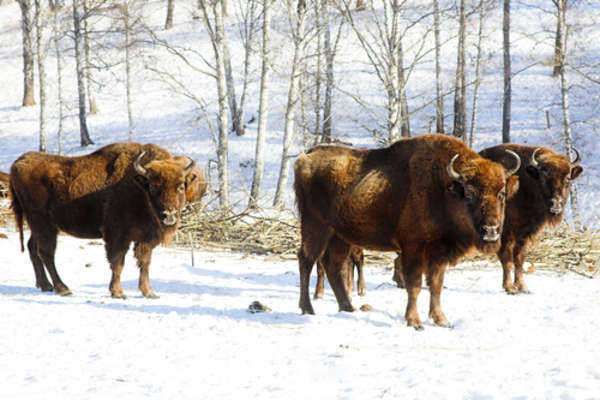
Montana hunting laws are the same for residents and non-residents alike. A popular animal to hunt in Montana is elk. Participators in Montana elk hunting, as well as other types of hunting, must follow a set of guidelines and rules before one is allowed to legally hunt in that state.
For an individual to be given the legal right to participate in Montana hunting, they must first get a Montana wildlife conservation license. A social security card is necessary for obtaining the conservation license that is needed for Montana elk hunting, as well as any other type of hunting. Since residents and non-residents of Montana must abide by the same hunting rules. Under most circumstances, an individual is only allowed to buy one Montana hunting license a year. Sometimes, Montana elk hunting licenses can be bought more than once.
Younger children are allowed to obtain certain types of Montana hunting licenses as long as they meet some requirements. If a child is 12 or will turn 12 while their license is being processed, they can legally purchase several different types of Montana hunting licenses. A Montana elk hunting license can be purchased, as well as a black bear Montana hunting licenses and two different types of deer hunting licenses.
Montana hunting is only legal for children under the age of 14 if they are accompanied by a qualified safety instructor, a parent or guardian, or an individual that has the parents' permission to take the child hunting.
Once an individual obtains a Montana hunting license, they have to carry it with them at all times when they hunt. Individuals can not lend their license to anyone else. As with most states, neon orange clothing is required, as well as time restrictions on when an individual is allowed to hunt, due to safety reasons.
Larger animals can be hunted between a half hour before sun rise until a half hour before sunset. A Montana hunting license does not entitle an individual to participate in party hunting, or an the action of several individuals shooting at the same animal. Each individual with a Montana hunting license has to shoot their own animal.
While obtaining a Montana hunting license can be complicated, knowing specific rules and regulations can help make the process much easier. One should keep the age of the individual in mind, as well as the various rules that accompany the ability to legally hunt in Montana. If you need legal advice and assistance, contact Montana lawyers.
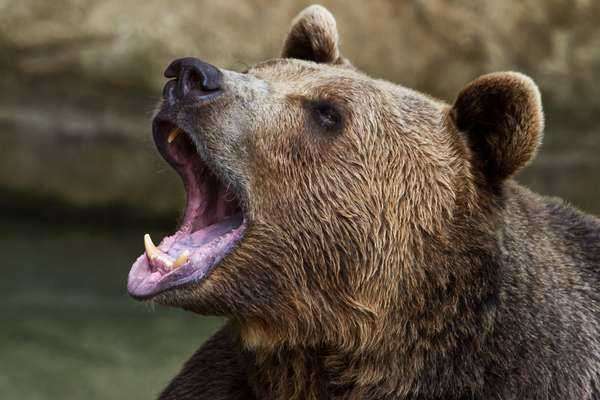
When one is trying to obtain a Nebraska hunting license, there are several steps they must follow. The process can not begin until the Nebraska Game and Parks Commission become involved. There are safety measures that must be taken. Nebraska wants to be certain that anyone with a Nebraska hunting license has taken the proper precautions and is knowledgeable about hunting.
While many Nebraska hunting laws are the same as other states, there is a difference. Anyone applying for a Nebraska hunting license must enroll in their local Firearm Hunter Education program before they can obtain a Nebraska hunting license. This strict Nebraska law imposes individuals to complete the program and become certified before being able to legally hunt. A non-resident is also allowed to hunt as long as they have their own certification from their home state. Every hunter must have their certification papers with them at all times when hunting.
In terms of laws for Nebraska hunting regarding age, a 12-year-old child is allowed to go hunting as long as a 19-year-old certified individual is with them. It is illegal for 12 years old to hunt larger animals such as bears and deer. Birds and smaller animals are allowed for younger children to hunt according to Nebraska hunting laws. A fairly standard rule in most states in that a hunter can only hunt between sunrise and sunset. However, Nebraska hunting licenses, as well as many other states, do not have the same restrictions on smaller animals.
The type of permit or license one tries to obtain for their Nebraska hunting license can vary depending on what type of animals they wish to hunt. The Nebraska Game and Parks Commission has extensive information on their website about the type of Nebraska hunting licenses that are available, as well as the fees. As long as one can prove certification, they can buy the Nebraska hunting permit of their choice on the Internet. Permits can also be bought at gun stores. As with any state, any individual who lends their Nebraska hunting license to another person can be legally punished, along with the individual using the Nebraska hunting license.
Since the list of Nebraska rules involving hunting is extensive, as with any state, one should familiarize themselves with Nebraska hunting laws before they use they obtain and use their Nebraska hunting license.
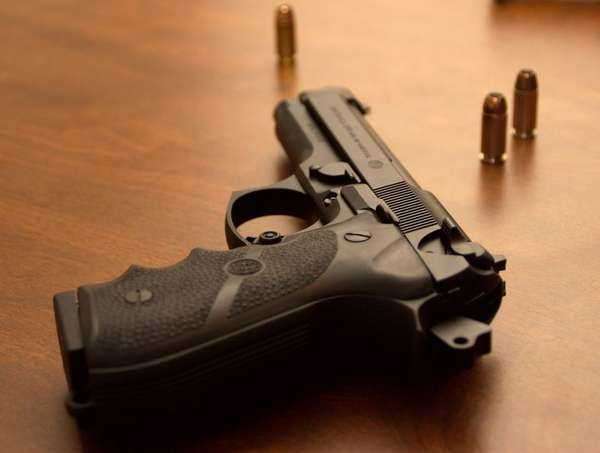
Nevada hunting is different from hunting in other states, although the hunting license that is needed is obtained in a similar matter as in other states. Nevada hunting offers the hunter a chance to hunt in a desert setting. An individual must identify what category they fall into before they can begin hunting and then get the appropriate hunting license.
The Nevada Department of Wildlife will decide what status an individual falls under. To participate in Nevada hunting, the individual must take a hunting license safety course. Providing proof of this by submitting the certification, or a hunting license safety card to the Nevada Department of Wildlife.
A hunting license that proves that an individual took a similar course in another state is also acceptable. The safety class for a Nevada hunting license, as well as a hunting license from another state can be pre-registered on the Internet. This is important because the process of obtaining a Nevada hunting license will be quicker if an individual pre-registers their hunting safety training certification on the Internet.
Once the proof of the hunting license safety course is accepted, an individual can buy their Nevada hunting license on the Internet. One can also buy a hunting license at a branch of the Nevada Department of Wildlife. The fees for a Nevada hunting license can vary. A resident will not have to pay as much as a non-resident will for their hunting license. This is true of most states. There are other things to buy besides the actual hunting license.
An individual must buy a permit which is appropriate for the type of hunting they will be doing. Game tags may also be purchased. Even with a in order to be allowed to legally hunt in Nevada. Nevada hunting license, one may be required to obtain a permit to hunt certain animals.
Residents of Nevada must get their hunting license before they apply for any permits, but non-residents should submit paper work for everything at once, along with the required fees.
A hunter may want to experience Nevada hunting whether or not they are a resident of the state. The desert offers a landscape that is very different from typical hunting locations such as Montana. If you need legal advice and assistance, contact Nevada lawyers.
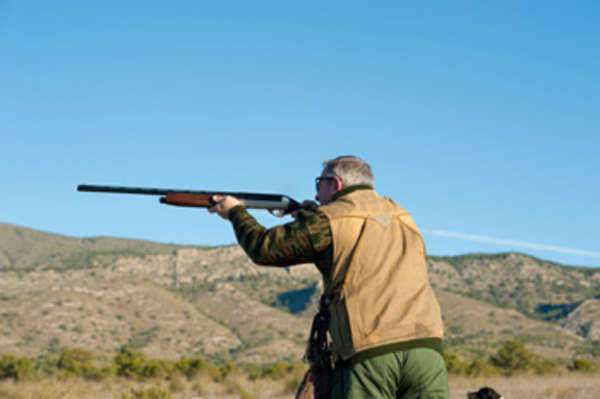
As in any state, there are hunting guidelines that must be followed to participate in the New Hampshire hunting experience. While there are many complicated and specific hunting guidelines in New Hampshire, many guidelines relating to New Hampshire hunting are common in other states as well.
Age matters when it comes to what type of New Hampshire hunting license one should apply for. If an individual is 16 or older, then they need to apply for a general hunting license. According to New Hampshire hunting guidelines, minors need to purchase several licenses in order to be able to hunt.
The four licenses that minors are required to get are a Brood Stock Salmon license, a Special Deer Archery license, a Turkey license, a Bear license, and a Unit M Special Deer Tag. If the minor is not a New Hampshire resident, then hunting guidelines specify that the minor must obtain a Muzzleloader license in addition to the others licenses for minors.
Hunting guidelines require that individuals take a typical safety course that most states also require. Once they have, individuals can purchase their New Hampshire hunting licenses on the Internet. There are several hunting licenses that one is unable to purchase on the Internet. The licenses that one cannot buy on the Internet are a permanent licenses such as Lifetime, Over Age 68, Disabled Veteran and Paraplegic.
New Hampshire hunting guidelines specify that those must be purchased at the New Hampshire Fish and Game Department. Licenses that can be purchased on the Internet are referred to as secondary licenses, according to the New Hampshire hunting guidelines.
Other New Hampshire hunting guidelines involving the Internet have to due with timing. After the year 2000, An individual must have obtained a New Hampshire hunting license in or after the year 2000. New Hampshire hunting guidelines take special care when it comes to fishing. Most states do not require a hunting license to fish, but even non-residents who only want to fish for a day need a special Temporary 1-Day Fishing license before they are allowed to fish. They are allowed to take any freshwater fish out of the water except for the Atlantic Salmon Brood Stock.
Most types of guns do not have to be registered in New Hampshire. As a state, one must only need their gun to be registered if they carry it in their car. Cities in New Hampshire may have different rules and regulations when it comes to buying and registering a gun. However, New Hampshire law eliminated many of those small rules, except when it comes to hunting. Hunting must only take place in designated areas. States laws must be followed when it comes to New Hampshire hunting.

One of the first steps in being able to hunt or trap in any state, is to obtain a hunting license. There are a few things to consider before obtaining a license for New Jersey hunting. For example, in the state of New Jersey there are actually many different kinds of hunting licenses that you may be eligible to apply for before setting out on your hunting trip.
These licenses include: residential licenses, licenses for men and woman who serve or have served in the armed forces, non-residential (if you are not from New Jersey but plan to engage in New Jersey hunting), a license that will allow you to hunt for just one day, and there are also special licenses for under aged individuals (youth licenses).
When applying for a license, there are usually fees that need to be paid, which vary according to the type of license that you wish to apply for. In New Jersey, it is also required that you complete the NJ Child Support Certification Process in order to apply for a license to go on a hunting trip.
New Jersey hunting also requires that you obtain permits/license that will allow you to hunt specific animals and also to carry certain firepower and/or weapons. Some of the animals that require special permits in order to hunt them in New Jersey include: wild turkey, deer, waterfowl/migratory birds, and other game animals. Along with the permits to hunt specific animals, you will also need permits/licenses for specific guns. When hunting specific animals, you will actually need to apply for a rifle permit.
In New Jersey, a rifle permit is required in order to hunt deer, coyote, and smaller game animals (i.e. squirrels, woodchucks, etc.). Aside from rifles, you will also need a license to use a bow and arrow. There are also fees that have to be paid when obtaining a weapon or game permit/license. The fees usually coincide with the hunting license that you apply for.
When New Jersey hunting, it is also important to understand how to properly tag/stamp and animal before your hunting trip. Each animal may have their own unique stamp that you will have to apply for. For example; waterfowl, duck, deer, pheasant/quail, etc. Stamp fees differ according to whichever animal you choose to hunt/trap while on your hunting trip.
For any information regarding special licenses, which areas are permitted for hunting, or any additional questions you may have before your hunting trip in New Jersey, contact the New Jersey Division of Fish and Wildlife. If you need legal advice and assistance, contact New Jersey lawyers.

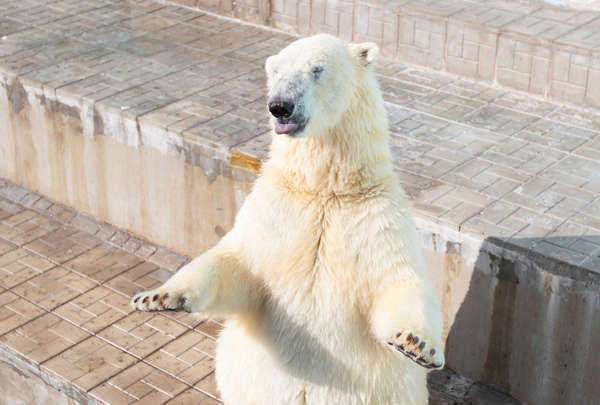
North Carolina hunting offers some exciting and unique opportunities to hunt in the state. Many residents and tourists hunt much of the wild life including, bears, deer, wild boar, turkeys, wild turkey, squirrels, birds, migratory birds, swans, and other excited wildlife. Mainly people are regulated by the the North Carolina wildlife Resources Commission. Many of the hunting laws of the state regulate the amount of a specific animal that can be hunted.
North Carolina honors all Federal hunting laws that override state laws. Mainly this is in respect to migratory birds, and other federally controlled wildlife. Hunting laws in North Carolina prohibit any person from taking migratory birds with the use of any shot gun bigger than a ten gauge, which includes;rifles, swivel guns, shot guns and more. North Carolina hunting prohibits that hunters conceal any migratory bird in a car, boat, under water device, or aircraft. North Carolina law also prohibits the use of any animal sounds or calls for commercial use or to the benefit of any human.
A hunter may not take a bird or game that exists within a baiting zone or a place which will attract other wildlife. Additionally game and migratory birds are not allowed to be captured during off seasons or periods in which a person has reached their bag limits.
Hunting laws require every hunter keep a bag limit of all they hunt which limits the amount that they hunt each day. One of the rarest of the birds is the Swan. This waterfowl can not be hunted by everyone. In North Carolina hunting drawings are done at random and hunters are only allowed to hunt one single swan ever in their life.These laws protect the animals from being coerced into unlawful hunting in the state.
Hunting laws on big game like bears, deer, boar, turkeys, etc… are a little more lenient but not much more. North Carolina hunting prohibits any the taking of any cubs or female bears with cubs. The use of bait to coerce bears is prohibited as well, including, salt licks, grain, fruit, sugar, sugar based products or materials, small animals, or animal parts. Additionally hunting laws prohibit that hunters place any food next to an area where bears are frequently resting that may be processed with any of these ingredients.
The most important of the bear restrictions is hunting on on bear sanctuaries. Each county in North Carolina houses a sanctuary for these animals. Bears are only allowed to be hunted during hunting season that includes both Western and Eastern season. Deer are another animal regulated within North Carolina hunting.
North Carlina only permits that up to six deer are hunted at a time, which creates another bag limit within hunting laws of the state. Hunting laws outline specific seasons when it is permitted to hunt these wild animals, including; Eastern, Central, Northwestern, and western deer seasons. They are each broken down by gun, bow and arrow, and muzzle loader.
Hunting laws in North Carolina are used to solely regulate the extinction of the animals. Although it is a sport widely used by citizens within the state and abroad, it is more important that the animal be the main focus over the human hunter themselves.
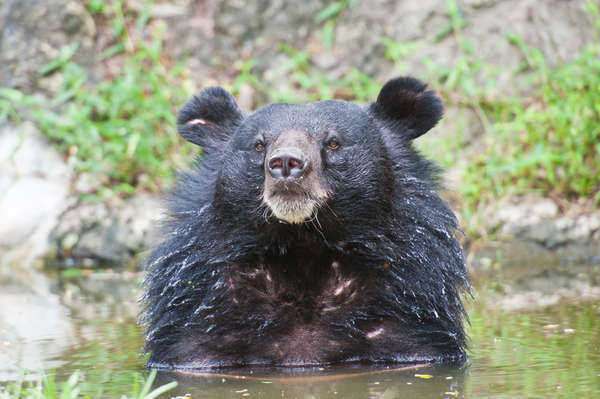
North Dakota hunting is a recreational activity that many residence as well as non-residence engage in every year. Many people interested in hunting move to North Dakota to hunt a wide variety of animals. Hunting in North Dakota is extremely popular and offers one of the widest ranges of animals when compared to other states in the United States.
Hunters can seek big game such as,deer, pronghorn, moose,elk, big horn sheep, mountain lions, prairie dogs, rabbits,skunks, gophers, coyote, and fox. Hunting in North Dakota for small game like,grouse, drove, crane, pheasant, snipe, woodchuck, squirrel, and Hungarian Partridge is engaged in frequently as well. Some waterfowl are allowed to be hunted in the state like, geese, duck, coots, mergansers, and swan.
Each category in North Dakota law on hunting offers specific laws and regulations to each. Generally speaking hunting in North Dakota is regulated through a series of different licenses and education courses. People born after nineteen sixty one need to complete a certified hunter education course and show a proof of education certificate in order to receive a licence to participate in North Dakota hunting. People born during or before nineteen sixty one do not need to attend this education course, however, they may have to go through other procedures when trying to hunt in anther states.
These two laws are specifically for those that are residence of North Dakota. Those that were not born before nineteen sixty one, haven't completed a certified hunter education course, and are under the age of sixteen may be issued an apprentice hunter validation. An apprentice hunter validation is only issued for one year, and allows the hunter to hunt small game and deer when joined by an adult. North Dakota hunting is regulated in a way that ensures the safety of the person hunting and those around them. If a young hunter does not know the proper way to hunt, they can hurt someone around them.
North Dakota hunting requires a specific license for a fish, hunting, and forbear certifications that cost one dollar, small game licences that are six dollars, and small game and habitat licenses for residents of the state. Non residents are required to pay more.
Hunting in North Dakota requires that residents pay additional fees if they seek combination licenses that cost about thirty two dollars all together. Fees also exist for those that wish to purchase crane permits, pronghorn bow licenses, youth pronghorn bow licenses, deer bow licenses and more. North Dakota hunting is very regulated so that the game and fish department know what is being hunted. Hunting in North Dakota for big game offers an opportunity for the hunter to donate to the homeless through the sportsmen hunger program.
This program offers the opportunity to join North Dakotas poverty fighting program. This aspect of the game and fish department showcases that North Dakota hunting is used both as recreation and a means to fight poverty. The safety of both the animals and people are very important in North Dakota.

As is the case in most every state, you must have a Michigan hunting license prior to partaking in any hunting activities. The minimum age for any type of license is 10, and that is for Gamebird Hunting Preserve.
There are special rules for youth hunters. While they can be licensed as early as the age of 10, hunters must be still be at least 12 years of age in order to hunt deer, bear or elk with a firearm. Hunters aged 12 to 13 may hunt deer, bear or elk with a firearm only on private land, including lands enrolled in the Commercial Forest program. Nonresidents under the age 17 may purchase resident and junior licenses.
In addition, junior archery deer hunting, junior combination deer, junior small game, and junior fur harvester licenses are available to both resident and nonresident hunters, ages 10 to 16, and also grant them the same privileges as the adult licenses. There are a number of rules that must be known following license. It is illegal to hunt or pursue wild animals or birds from a motorized vehicle or any type as well as from a sailboat.
You may not set fires to drive out game. You may not buy or sell game, except as provided by trapping rules or captive wildlife permit. Hunting under the influence of alcohol or any drugs or other substances of the like is strictly prohibited as it put's yourself as well as other at a great risk. In terms of firearms, you may not us cartridges containing a tracer or explosive bullets. Usage of a silencer is also prohibited. Dogs are expressly forbidden from being used while hunting in the state of Michigan. The only exception for usage of dogs would be in order to detect wounded deer.
Specifications exist, however, none of the persons may carry a firearm or bow and arrow, and the dog may not constantly barks while tracking is also forbidden. One other item may be held during night-tracking, and that is an artificial light. You may not harm or harass a bear or deer that is in a body of water, as well as cannot kill or wound an animal without reasonably attempting to retrieve the carcass and add it to your daily bag.
Reptiles and amphibians are also not to be shot at with a firearm of any kind. In terms of possession of wild animals, it is illegal to possess a bat or skunk in Michigan. As float hunting seems to be a popular option amidst the great lakes, there is also regulation stated as opposed to a lack thereof in other states.
Float hunters must obtain permission to enter lands protected by the recreational trespass law. They may, however float hunt public lands open to hunting, so be aware of your location. Hunter harassment is also forbidden and should be reported as soon as the violation occurs. No one individual's hunting experience should ever be interfered with lacking just cause.
If you need legal advice and assistance, contact Michigan lawyers.